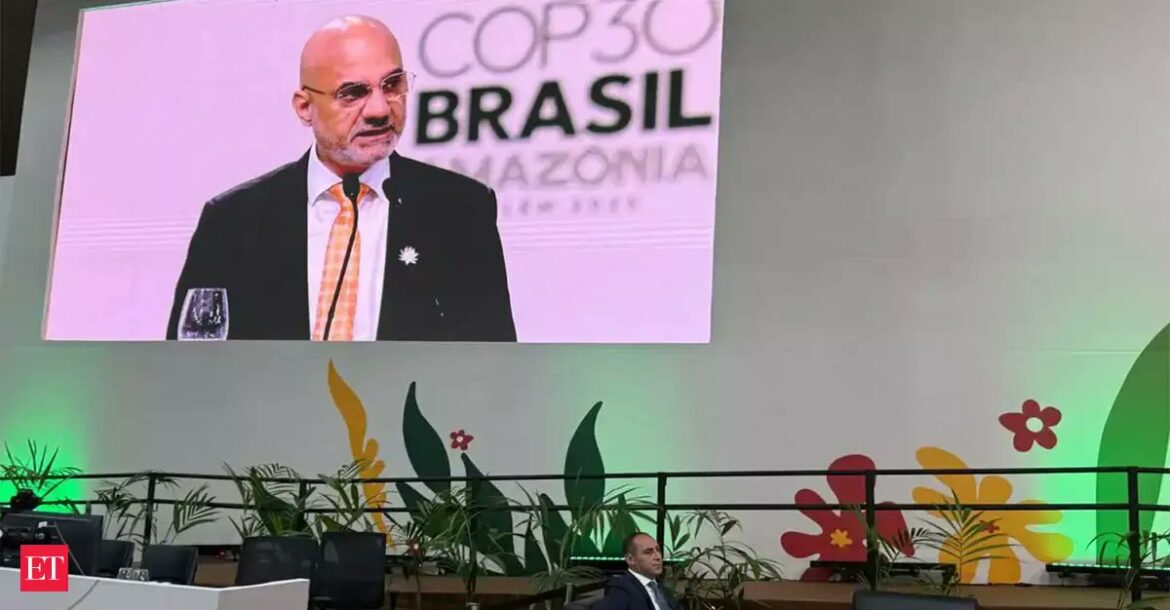Belem: Indian Ambassador to Brazil, Dinesh Bhatia, on behalf of Prime Minister Narendra Modi, presented India’s national statement at the World Leaders’ Summit ahead of the COP30 climate conference, reaffirming the country’s commitment to climate action, multilateral cooperation, and equity-driven solutions, while urging developed nations to take greater responsibility for reducing emissions and supporting developing countries.
Addressing the plenary in Belem, Ambassador Bhatia said the world must remember the “principles of equity and common but differentiated responsibilities,” adopted at the 1992 Rio Summit, and ensure that global climate efforts remain rooted in fairness and shared accountability.
“Ten years after the Paris Agreement, global ambition remains inadequate. Many nations’ NDCs (Nationally Determined Contributions) fall short. While developing countries continue to take decisive climate action, developed countries that have disproportionately appropriated the global carbon budget must accelerate emission reductions and deliver the promised, adequate, and predictable support,” he said.
The Indian envoy warned that the global carbon budget is rapidly depleting, stressing that developed nations must achieve net zero much sooner than their current timelines and move towards net-negative emissions to create a balance.
“Given the rapid depletion of the meagre remaining carbon budget, developed countries must reach net zero much sooner than they have declared and invest substantially in reaching net-negative emissions”, he said.
Bhatia highlighted India’s progress in pursuing a low-carbon development path under Prime Minister Modi’s leadership, noting that the country has achieved several of its climate goals well ahead of schedule.
“Between 2005 and 2020, we reduced the emission intensity of GDP by 36 per cent, and this trend continues. Non-fossil power installed capacity now accounts for over 50% of our total installed capacity, enabling us to reach our revised NDC target five years ahead of schedule,” he said.
He also cited the success of the International Solar Alliance, launched by India and France in 2015, which now brings together over 120 countries to promote affordable solar power and South-South cooperation.
Reiterating India’s stance that developing countries must have fair access to resources and technology, Bhatia emphasised that “equitable, predictable and concessional climate finance” remains essential for achieving global goals.
“For developing nations like India, access to affordable finance, technology, and capacity building is vital to implement ambitious NDCs,” he said.
India also expressed support for Brazil’s new initiative, the Tropical Forests Forever Facility (TFFF), aimed at preserving global tropical forests, and announced its decision to join the Facility as an Observer.
Read More
- Iraq heads for its sixth parliamentary elections since 2003, as millions prepare to cast their votes on November 11
- Unified GCC visa expected to launch in 2026, says Saudi minister
- Nepal PM urges eligible voters to register as nation enters final week of poll rolls
- Trump administration directs visa officers to deny entry to immigrants with medical conditions like diabetes, obesity
- Abu Dhabi adds 3,700 Dh2 per-hour fee parking slots to regulate traffic in Al Shahamah







